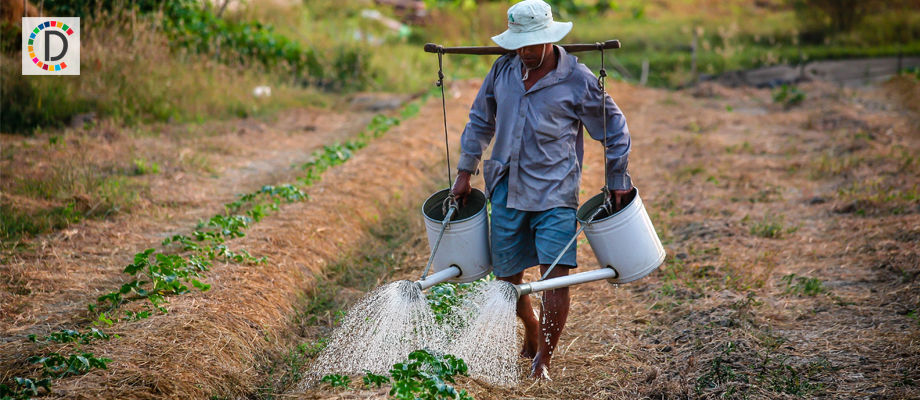UPDATE 4-Economists doubt Trump outlook that US will sell 'so much' beef to Australia
U.S. President Donald Trump said that the United States would sell "so much" beef to Australia after Canberra relaxed import restrictions on Thursday, but economists and traders said that high prices and tight supplies make major American exports unlikely.

U.S. President Donald Trump said that the United States would sell "so much" beef to Australia after Canberra relaxed import restrictions on Thursday, but economists and traders said that high prices and tight supplies make major American exports unlikely. Australia said it would loosen biosecurity rules for U.S. beef. The move will not significantly increase U.S. shipments, though, because Australia is a major beef producer and exporter whose prices are much lower, analysts said. U.S. companies export small quantities of beef to Australian buyers. They import much more in the form of lean beef used to make hamburgers, particularly as U.S. production has declined due to tight cattle supplies. U.S. beef prices set records this year and the number of beef cattle fell to the lowest level since 1961 after ranchers slashed their herds due to drought that burned up pasturelands used for grazing. A ban on cattle imports from Mexico because of New World screwworm, a devastating livestock pest, and steep tariffs on Brazilian beef that are set to take effect on Aug. 1 could further tighten supplies, and require additional imports of Australian beef.
"We can't get enough beef in the U.S. right now, so we're bringing it in from Australia and Brazil," said Dan Norcini, an independent U.S. livestock trader. "We're not going to be selling anything significant to anyone." Last year, Australia shipped almost 400,000 metric tons of beef worth $2.9 billion to the United States, with just 269 tons of U.S. product moving the other way. "They have more cattle than people," said David Anderson, an agricultural economist at Texas A&M University. "That's why they export so much."
DIFFERENT TASTE U.S. and Australian beef also taste different. Many Australians like the grass-fed beef raised there, not marbled beef from U.S.-raised cattle that are generally fed with grain, said Jerry Klassen, chief analyst for Resilient Capital in Winnipeg. He predicted the United States will not export substantial amounts of beef to Australia in the next five years.
"We just aren't in a position to export much beef to anyone, and the reality is Australia doesn't really have much need for U.S. beef," said Karl Setzer, partner at Consus Ag. The barriers that remain to exporting significant volumes of U.S. beef to Australia appeared to be lost on Trump this week. "We are going to sell so much to Australia because this is undeniable and irrefutable Proof that U.S. Beef is the Safest and Best in the entire World," Trump said in a post on Truth Social. "The other Countries that refuse our magnificent Beef are ON NOTICE." Trump has attempted to renegotiate trade deals with numerous countries he says have taken advantage of the United States – a characterisation many economists dispute.
"For decades, Australia imposed unjustified barriers on U.S. beef," U.S. Trade Representative Jamieson Greer said in a statement, calling Australia's decision a "major milestone in lowering trade barriers and securing market access for U.S. farmers and ranchers." Australian officials say the relaxation of restrictions was not part of any trade negotiations but the result of a years-long assessment of U.S. biosecurity practices. Canberra has restricted U.S. beef imports since 2003 due to concerns about bovine spongiform encephalopathy (BSE), or mad cow disease. Since 2019, it has allowed in meat from animals born, raised and slaughtered in the U.S. but few suppliers were able to prove that their cattle had not been in Canada and Mexico. The U.S. sources some of its feeder cattle from the two neighboring countries.
On Wednesday, Australia's agriculture ministry said U.S. cattle traceability and control systems had improved enough that Australia could accept beef from cattle born in Canada or Mexico and slaughtered in the United States. The decision has caused some concern in Australia, where biosecurity is seen as essential to prevent diseases and pests from ravaging the farm sector.
"We need to know if (the government) is sacrificing our high biosecurity standards just so Prime Minister Anthony Albanese can obtain a meeting with U.S. President Donald Trump," shadow agriculture minister David Littleproud said in a statement. Australia faces a 10% across-the-board U.S. tariff, as well 50% tariffs on steel and aluminium. Trump has also threatened to impose a 200% tariff on pharmaceuticals.
Asked whether the change would help achieve a trade deal, Australian Trade Minister Don Farrell said: "I'm not too sure." "We haven't done this in order to entice the Americans into a trade agreement," he said. "We think that they should do that anyway."
(This story has not been edited by Devdiscourse staff and is auto-generated from a syndicated feed.)
ALSO READ
Trump's Tariff Turmoil: A Strain on US-Canada Trade Relations
Trump's Tariff Turmoil: The Trade Tension with Canada
Trump's Tariff Tussle with Canada: A New Trade War Frontier
Mitchell Starc: 100 Tests and Counting – An Unstoppable Force in Australian Cricket
Team of Mumbai police visits comedian Kapil Sharma's house in Mumbai, day after shots were fired at his restaurant in Canada: Official.










